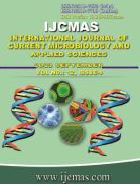


 National Academy of Agricultural Sciences (NAAS)
National Academy of Agricultural Sciences (NAAS)

|
PRINT ISSN : 2319-7692
Online ISSN : 2319-7706 Issues : 12 per year Publisher : Excellent Publishers Email : editorijcmas@gmail.com / submit@ijcmas.com Editor-in-chief: Dr.M.Prakash Index Copernicus ICV 2018: 95.39 NAAS RATING 2020: 5.38 |
Ethnobotanical research in tropical regions plays a crucial role in understanding the traditional knowledge and uses of plants among indigenous communities. This study aims to document and analyze the rich plant diversity and cultural practices associated with it in a selected tropics area. Through participant observation, semi-structured interviews, and focus group discussions, we collected data on local plant uses, ecological knowledge, and associated beliefs. Voucher specimens were collected for plant identification and documentation. The findings revealed a diverse array of plant species and their multifaceted uses in traditional medicine, rituals, and daily life. This research contributes valuable insights into the relationship between humans and the tropical ecosystem, providing a basis for conservation and sustainable development efforts. There is tremendous scope of improving indigenous practices and technologies by means of substituting low cost scientific interventions. The scientific interventions are indispensable for refining the methods of collection, processing and value addition in Ethnobotanical resources or MAPs which will enhance the value of products many folds than unprocessed raw products. Training and experiential learning i.e. learning by doing improve the skills and knowledge for developing value added products and ensure higher returns to indigenous communities. The article will support and enhance the livelihood and economy of indigenous communities.
 |
 |
 |
 |
 |